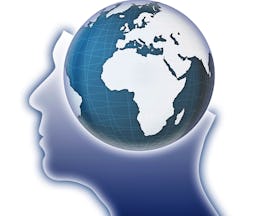Filter by
The language used throughout the course, in both instruction and assessments.
Choose the Intercultural Communication Course That Aligns Best With Your Educational Goals

University of California, Irvine
Skills you'll gain: Communication

National University of Singapore
Skills you'll gain: Business Communication, Communication
 Status: Free
Status: FreeÉcole Polytechnique
Skills you'll gain: Communication, Culture, Writing

University of Pennsylvania
Skills you'll gain: Leadership and Management, Collaboration, Communication, Business Psychology, Emotional Intelligence, Entrepreneurship, Culture, People Management, Strategy and Operations, Professional Development, Human Resources, Organizational Development, Human Learning

Starweaver
Skills you'll gain: Performance Management

University of California, Irvine
Skills you'll gain: Collaboration, Communication, Conflict Management, Leadership and Management

ESCP Business School
Skills you'll gain: Business Psychology, Culture, Leadership and Management, Business Communication, Communication, Collaboration, Entrepreneurship, Human Resources, Marketing, Sales
 Status: Free
Status: FreeUniversidade Estadual de Campinas
Skills you'll gain: Culture, Communication, Critical Thinking

Fundação Instituto de Administração
Skills you'll gain: Leadership and Management, Strategy, Communication, Business Analysis, Calculus, Data Analysis Software, Databases, Strategy and Operations, Cloud Computing, Design and Product, Entrepreneurship, Problem Solving, Data Analysis
 Status: Free
Status: FreeUniversidad de los Andes
Skills you'll gain: Communication
 Status: Free
Status: FreePeking University

Rice University
Searches related to intercultural communication
In summary, here are 10 of our most popular intercultural communication courses
- Intercultural Communication and Conflict Resolution: University of California, Irvine
- Establishing a Professional ‘Self’ through Effective Intercultural Communication: National University of Singapore
- Étudier en France: French Intermediate course B1-B2: École Polytechnique
- Culture-Driven Team Building: University of Pennsylvania
- Management Skills for New Managers: Starweaver
- Conflict Management: University of California, Irvine
- Intercultural Management: ESCP Business School
- Pluralidades em Português Brasileiro: Universidade Estadual de Campinas
- Tópicos em Gestão Intercultural: Fundação Instituto de Administração
- Comprender las dimensiones interculturales en la cotidianidad: Universidad de los Andes










